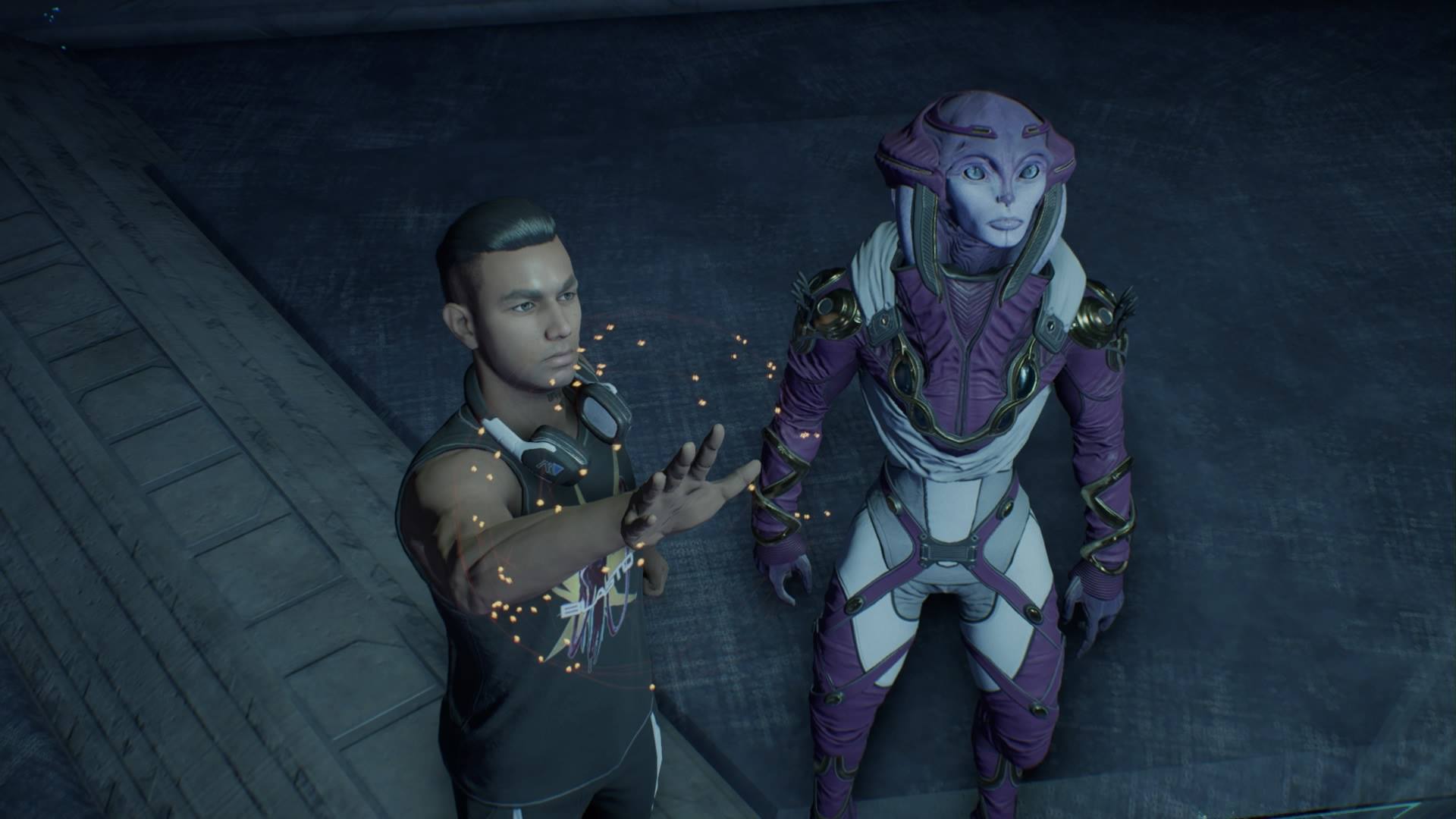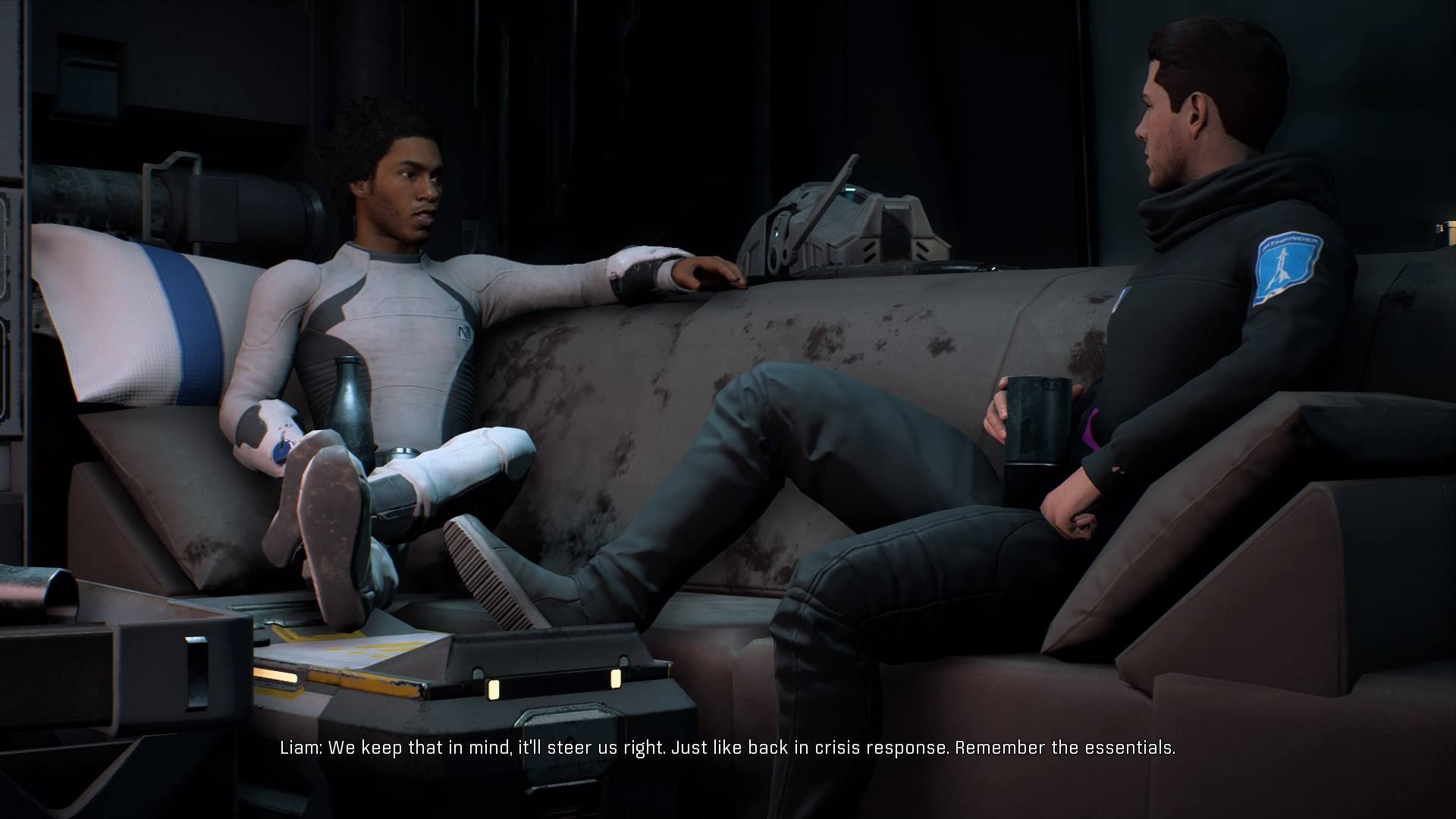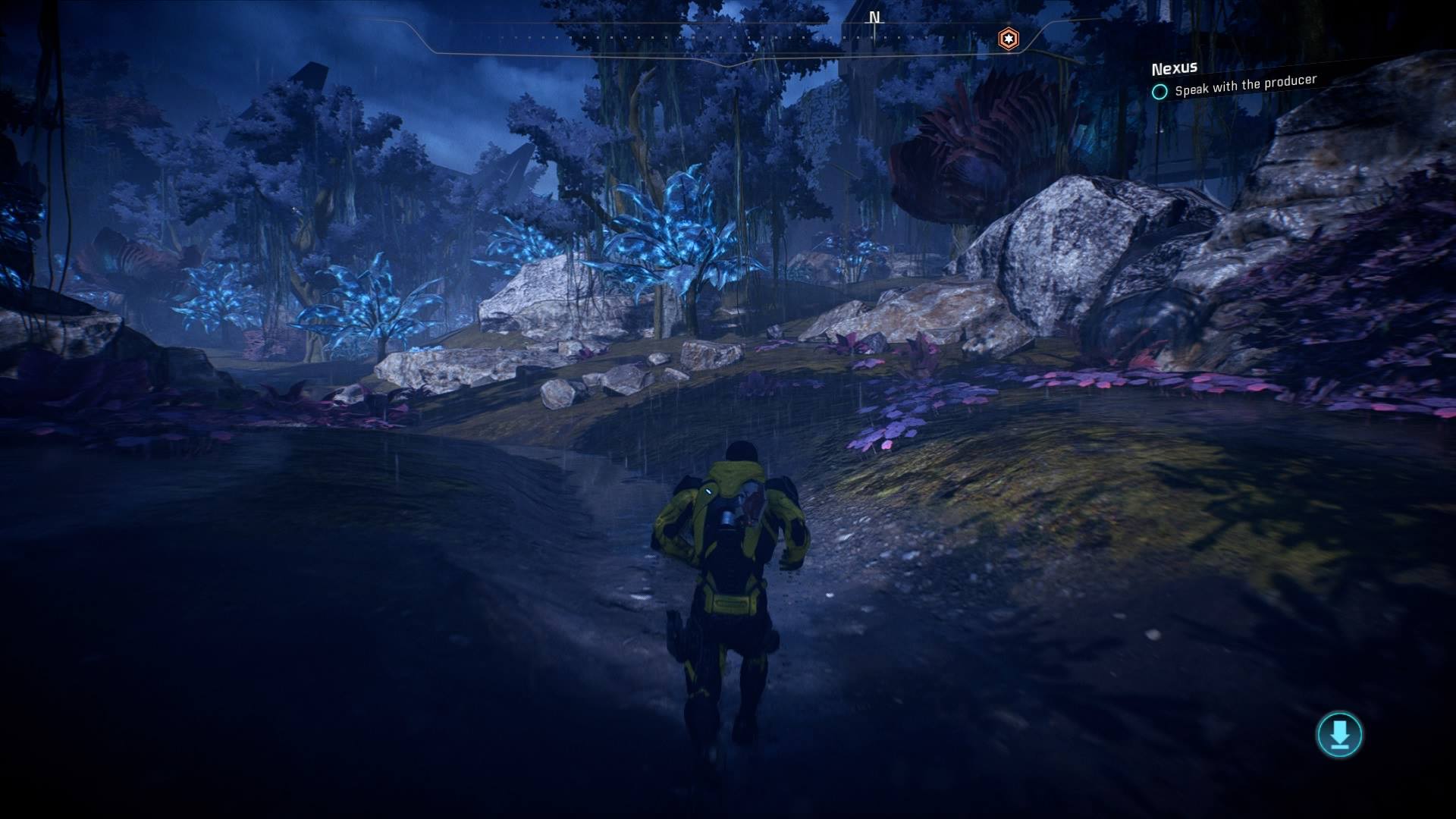 Mass Effect: Andromeda had the heavy responsibility of making up for the debacle that was Mass Effect 3‘s ending, which soured a lot of people’s love for the series. Bioware attempted to remedy this with a DLC epilogue, and while I personally believe they accomplished their goal, many other fans still disliked the overall direction of the ending. It’s a shame then, that when Mass Effect: Andromeda launched, it was met with the worst reception, both among critics and fans, of any game in the series to date. To be fair, the game did not reach the heights of the original trilogy, but I believe it was much better than most seemed to give it credit for.
Mass Effect: Andromeda had the heavy responsibility of making up for the debacle that was Mass Effect 3‘s ending, which soured a lot of people’s love for the series. Bioware attempted to remedy this with a DLC epilogue, and while I personally believe they accomplished their goal, many other fans still disliked the overall direction of the ending. It’s a shame then, that when Mass Effect: Andromeda launched, it was met with the worst reception, both among critics and fans, of any game in the series to date. To be fair, the game did not reach the heights of the original trilogy, but I believe it was much better than most seemed to give it credit for.
One of the main criticisms of the game was the facial animations. That was a valid complaint. Some of the characters did look rather dead inside, but there were also a lot of characters who were animated quite well. The bad ones just overshadowed the good ones for many. The game underwent some patches since launch and has since has had a lot of the animations tweaked and refined. They’re not perfect still, but they’re better than they were and have arrived at the point where I don’t believe they really detract from the overall experience much at all.
The second thing that garnered a lot of criticism was the story. In some ways, I can agree with these complaints. There are several aspects to the story that feel like rehashes of plot points from the original trilogy and the game only introduces two new alien species and cuts many from the original trilogy out. Neither of the two new species are particularly interesting. However, they fulfil their role in the plot just fine. In essence, I would essentially say that the story of Andromeda is just a lighter version of the original trilogy. It covers a lot of the same elements, but takes a more lighthearted approach to many things. I don’t consider this a bad thing, just a different thing. But if you’re expecting more Mass Effect 3 with its high stakes and heavy emotional moments, yes, you are going to be disappointed. One thing that really helps the story however, is the decision to axe the paragon/renegade (good/evil) system from the original trilogy. Instead of a paragon, neutral, and renegade option, there are now four different responses types: casual, emotional, logical, and professional. Usually only two of the four options are presented during dialogue, but there are moments when all four are made available to you. Additionally, because of the removal of the paragon/renegade system, when the player is asked to make an important decision they are presented with two equally valid options instead of one that is obviously considered good or paragon and one that is obviously considered evil or renegade. In the original trilogy, you could tend to get stuck just picking all the paragon options or all the renegade options because that’s just the kind of character you decided to create from the start. Andromeda may force the player into a similar situation during normal dialogue, having you habitually pick casual and emotional options for example, but during major plot decisions, the player is free to choose the option that they actually think is best.
In terms of your squadmates, they aren’t the most interesting bunch, but I’d argue that the cast in the original Mass Effect was not that interesting either and it was the sequels that helped flesh them out, but I think just like the original game, players are likely to find at least a few squadmates that they like in Andromeda. Loyalty missions return from Mass Effect 2 to help connect you to the characters more, and they’re moderately successful as they’re fun missions, but they’re nowhere near as unique as some of Mass Effect 2’s best. There are also still romance options for the player and the number of options is fairly large. That said, not all of the romances are equally deep, as some are limited to characters you meet during specific points in the story; they aren’t on your ship and some romances are crew members aboard the ship, not squad mates. There are however options for both straight and gay players. Initially, fans expressed dissatisfaction with the male romance options for a male player, so Bioware added a male squadmate in as a romance option in a post release patch to even things out.

While overall this isn’t the best work Bioware has ever done in terms of characterization, I think there’s something to be said for their commitment to this type of story telling in general. Not many games attempt to involve the player in the story this heavily while still having an in-depth gameplay system to support it. This is something Bioware games always have going for them, even when the execution is fumbled a bit as in the case of Andromeda.
The gameplay of Andromeda is similar to the original trilogy, but there are several key differences that make it stand out. The game still operates as a third person cover based shooter, with various abilities and skills at your disposal. However, the radial menu is gone. You can longer pause the game and select which ability from your list you want to use and can no longer direct squadmates to use specific abilities. Instead, you now have three active abilities that can be immediately used via button press, some of which can be combo’d with others for interesting effects. Should you wish to use more than these three abilities without going into the menu and readjusting all your skills, you can make use of the profile system. Essentially profiles are both sets of abilities you can switch between in battle and are also kind of where the classes from previous games ended up. The classes from the original trilogy have now been reordered into profiles. Say you use only biotic, dark energy, abilities. You’ll want to pick the Adept profile that specializes in these skills and gives you buffs to them. If you’re using a mix of combat and tech skills, you may want to use the Infiltrator profile. So during battle you can switch between created sets of three abilities and one profile/class.
This system works well enough, but I personally found myself ignoring the profile switching system and just sticking to the same three abilities for the whole game. This may sound limiting, but it actually still works well because it helps you get accustomed to a specific playstyle and the profile that buffs it. The combat also has a lot more verticality to it as you can now jump and hover in mid-air. This affects exploration more than combat, but you’re able to jump and dodge to get out of danger now. My biggest gripe with the combat is the inability to tell your squadmates when to use certain abilities. The Mass Effect series uses a health system for enemies that includes various types of armor: shields, armor, barriers, and standard health. Many abilities are good for taking out specific types of armor and losing the ability to direct squadmates to use these abilities on enemies with specific health types is a huge issue. You can direct your squad to attack certain people, but how they choose to attack them is kind of up in the air once you tell them to do it. It’s a system that makes your squadmates all but useless, but I suppose the benefit of this is that you can just bring whoever you want out on missions instead of whoever compliments your abilities best. Overall though, the combat feels great. The combo system is even more satisfying than it was in Mass Effect 3 and there is a wide array of abilities for you to choose from to create a playstyle that suits you. In my first playthrough, I did my best to recreate the massively overpowered Vanguard class from Mass Effect 3 and in another I was a cloaking shotgunner who could cause explosions of ice. There are a lot of possible variations.
Andromeda also introduces a weapon and armor crafting system. While out exploring, you can scan various things with a brand new scanner to collect research points. You can also find various materials, such as ore, while out on your travels. When you get to the crafting menu, you can use research points to buy blueprints for weapons and armor and then use the materials you’ve collected to craft the item from the blueprint. This system kind of sucks and really for one reason only: there are way too many different types of resources. Mass Effect 2 had four resource types so it was very easy to go collect whatever material you were missing. Not the case in Andromeda. If you don’t have the materials you need, then good luck. Ultimately I suppose it doesn’t matter since new weapons and armor in the Mass Effect series are more about trying out new passives and playstyles than actual objectively better stat increases. So you can largely ignore the crafting system and be fine, which admittedly is more than I can say of Mass Effect 2‘s required planet scanning.

As for the exploration itself, it, like the crafting system, is largely just kind of there. There’s not much incentive really to explore the game’s areas which take the Dragon Age: Inquisition approach of several smaller open areas rather than one large one. When you get a mission, you’ll likely just travel straight to the objective marker on the map, unless you’re really determined to craft that weapon or armor set and go exploring for materials. It’s basically just like if missions from the original trilogy were occasionally broken up by platforming and driving sections. I honestly don’t think the lack of intrigue in the open areas really actively detracts from the game, but it doesn’t really add anything either.
One last semi-minor thing I want to touch on is the character creator. It is so bad. I honestly cannot figure out how Bioware managed to make it so terrible when there are so many different options for customization. I think the biggest problem is that you have to start with one of several presets and these presets largely have their eye, nose, and eyebrow shape predetermined. Eyebrows are almost always black which tends to make the large amount of hair colors on offer look odd. This was the first game with a character creator I can think of where I actually went with the default appearance for my first playthrough. With enough dedication though you can make it work, as I managed to on subsequent playthroughs. I will also point out that the female characters tend to fare better than the men. Additionally, the character creator was also something that Bioware attempted to remedy with post release patches and while they definitely helped, I wouldn’t consider the main issues fixed.
At the end of the day, Mass Effect Andromeda does have a lot of flaws. However, many of the flaws were largely patched out since release or can almost literally be ignored. The core gameplay and combat is so good that almost everything else can be forgiven. And while the party members you can befriend may not be the best characters Bioware has ever produced, they definitely have their moments of charm. Ditching the paragon/renegade system also helps to craft a more nuanced protagonist than before, even if the situations that character finds themselves in seems a little less serious than the ones Shepard found themselves in. If you like the Mass Effect series, but can go into this without expecting it to just be the second or third game all over again, I think you’ll enjoy it.
REVIEW CODE: A complimentary Playstation 4 code was provided to Bonus Stage for this review. Please send all review code enquiries to press@4gn.co.uk.
Subscribe to our mailing list
Get the latest game reviews, news, features, and more straight to your inbox
Thank you for subscribing to Bonus Stage.
Something went wrong.
Mass Effect Andromeda Review
-
Gameplay - 9/10
9/10
-
Graphics - 7/10
7/10
-
Sound - 9/10
9/10
-
Replay Value - 9/10
9/10
Overall
Summary
While never reaching the heights of some of it’s predecessors, Mass Effect Andromeda is a genuinely fun game that was the target of a lot of undeserved ire at its launch.





